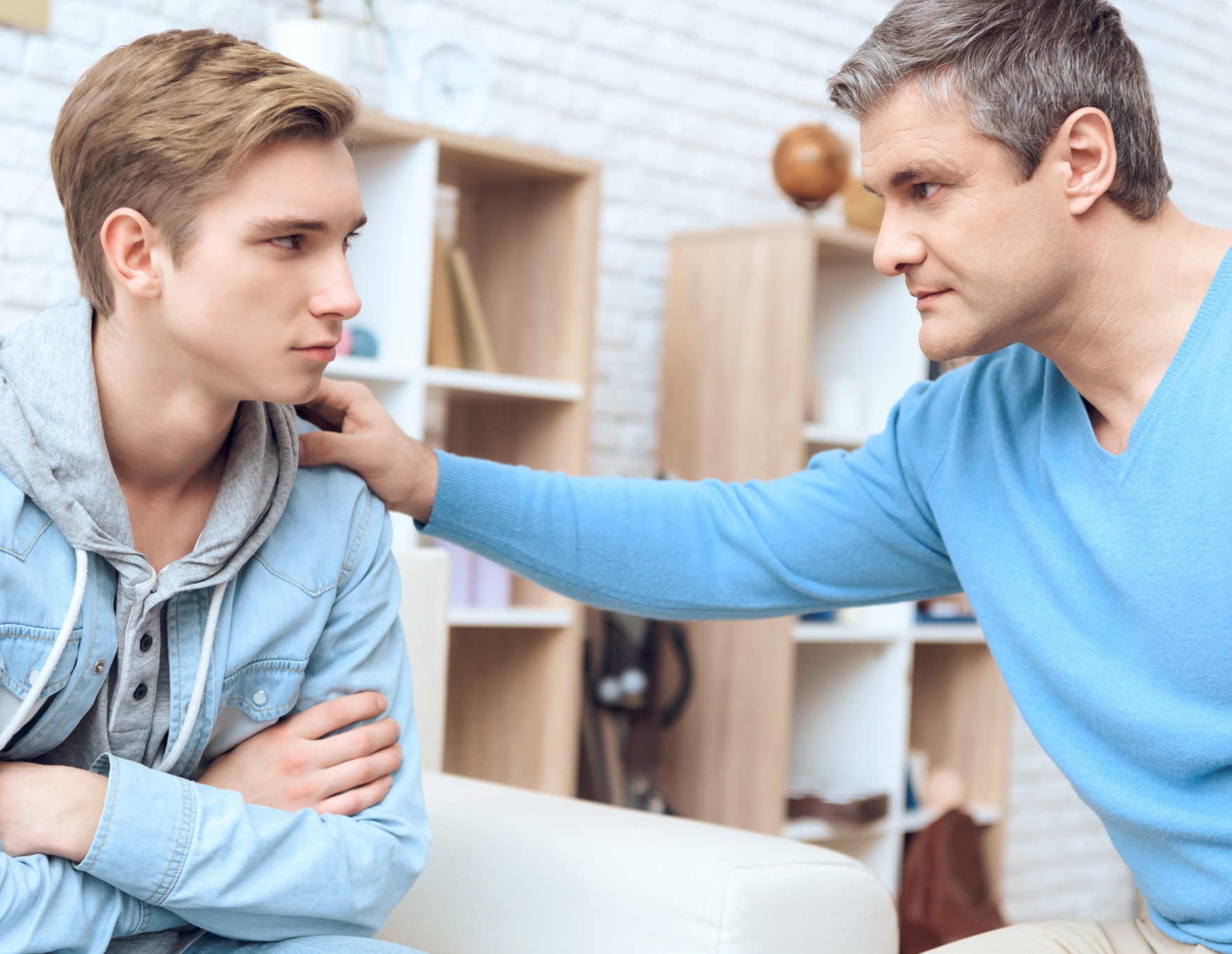Keeping your child safe
Party Scene
As children reach their teenage years, social events and parties suddenly are on their radar. Parents are often faced with some tough decisions about helping their child to balance fun and safety in social situations. So, what can you do to keep your child safe on the party scene?
The key to safe partying is awareness and smart thinking, by understanding the potential risks, and how to handle these situations.
This paper aims to help you prepare for the onset of teenage parties, understand the risks and help you to navigate a conversation with your child about how to party safely.
Hosting a party and keeping your child safe
Register your party
Thinking of hosting a party at your home? To help keep everyone safe, register the party with the police, at least one week before your event. You can do this online through Service Victoria, or in person at your local police station. Registering your party is not a substitute for adult supervision. You are still required to manage a party in your home.
Limit guest numbers
One of the most effective ways to keep a party under control is to limit the number of guests. In doing so, you will also want to think about how to deal with the plus-ones, and when, why and how to refuse entry to uninvited guests.
A good way to limit guest numbers is to send out physical invitations. You might also consider using your invitation then as an entry pass, or provide wrist bands at entry. It is not advisable to advertise a party through social media as the numbers can quickly get out of hand. However, if you do decide to use social media to invite guests, ensure that the invitation is private and not publicly accessible.
Consider hiring professional security
A useful option to ensure control and minimise risk during a party is to hire security guards to help manage the event. Security guards are a great way of controlling numbers as they can check invites, are first aid trained and also trained in the Responsible Service of Alcohol and, if requested, can be utilised in this way.

Risks
Uninvited guests and gate-crashers
Gate-crashing occurs when uninvited party guests arrive wanting to gain entry. We have all heard (or experienced) instances of extreme cases where hundreds of people have turned up uninvited. It can be a potentially very dangerous situation, which often leads to property damage, disruptive behaviour and violence, and can place guests at risk of significant injury.
Here are some tips on how to avoid this situation:
- restrict guest numbers (and plan ahead for plus-ones)
- avoid the use of social media for invitations
- make it difficult for gate-crashers to gain entry by limiting entry points and having all access points supervised for the duration of the event
If gate-crashers do arrive, keep calm and ask them to leave. If you have security, they are trained to deal with unwanted guests and can often diffuse a situation. If this does not work, and the gate-crashers seem determined to gain entry, phone the police on 000 and ask them to attend.
Alcohol and underage drinking
The laws of Victoria state that it is is illegal for a child (person under 18 years of age) to consume alcohol unless the child is in the company of a responsible adult, who is either the child’s parent or guardian, or has the consent of the child’s parent or guardian.
What does this mean for your party? This means that underage guests can legally drink at your home, provided they have their parent or guardians consent to do so. Police can issue an on the spot fine of $886 if you supply alcohol without obtaining a parent’s consent, and the child may be fined.
So, what should you do? If you intend to have alcohol available at your party, where possible, make contact with all parents and guardians of guests to obtain their consent in advance. One way is to have a signature block on the party invitation – the signature block should contain the parent or guardian’s name, phone number, signature and date of signature.
Remember, as the host of the party, your responsibility does not end once you have obtained consent. The safety of your guests is your responsibility and will need to be monitored.
If you intend to supply alcohol, consider both the amount and type of alcoholic drinks. Supplying the alcohol will give you more control over the amount and type consumed by your guests. Ask all guests not to BYO alcohol and monitor this at entry.
You should also have a responsible adult serving any alcohol from a single location. Limit the supply of spirits, and consider options of light beer or other diluted drinks.
Should any of your guests become intoxicated, stop serving alcohol to them immediately and always seek medical attention for any guest who is non-responsive. Contact the parents of any intoxicated guests as soon as possible, and request that they be picked up for their safety.
Violence and Illicit drugs
Violence
Violence, or alcohol-fuelled violence, is sadly not uncommon at poorly supervised underage parties. Exercise zero tolerance of any violent behaviour and ask guests who have become violent to stop the behaviour and leave immediately.
Active supervision throughout your event will be crucial in preventing an outbreak of violence. Supervising adults should walk through the party area and mingle with guests during the event, to identify any possible problems before they escalate.
Drugs
The simple fact is that drugs are illegal and, as a host, you can be found liable if a guest uses these substances on your premises. Don’t hesitate to ask a guest who has illegal substances to leave your house.
You may also consider confiscating any illicit substances held by a guest. However, it is important to keep in mind what you intend to do should you confiscate an item. Should you decide to return the item after the party is over, you could potentially still be liable for any accident that occurs after the guest has left. Instead, consider the option of returning the substance or item to the guest’s parent or guardian and asking them to collect their child from the party as soon as possible.

Role of the parent
Your Duty of Care
If you are hosting a party, it is important to remember that you owe a duty of care to your guests. This means that you should take all reasonable steps to ensure that everyone attending your party is kept safe.
The following is a short checklist to help you with this:
- Ensure that your property is free from any obvious hazards
- Consider setting and enforcing some ‘out of bounds’ areas (such as pools and open fires)
- Offer plenty of food and alternate drink options (soft drinks and similar) to avoid drunkenness
- Be prepared for possible injuries or medical incidents
- Have a list of contact details for parents of guests to use in case of emergency
- Ensure adequate supervision during the party
- Limit entry points to your property and ensure they are supervised throughout the event
- Consider how your guests might get home after the party (especially if alcohol has been served), perhaps consider arranging for taxis or encourage parents to collect their teens
- Consider organising Public Liability insurance to ensure you are covered should an injury occur
Your child at teenage parties
An invitation to a friend’s party is a great time to have a conversation with your child about safe partying and the potential risks involved. Take the time to sit down with your child and talk about having a good time without coming to harm.
Key topics to chat about could include:
- Peer pressure to drink or take drugs
- Risk of drink spiking and some tips to avoid it
- Aggressive or violent behaviour
- Unsafe or non-consensual sex
- What to do if things ‘go wrong’
Now that you know about the party, it is important that you find out more information and, where possible, contact the hosts. The most important details you will want to know are:
- Start and finish times
- The number of invited guests
- How the party will be supervised
- Whether food will be served
- Whether alcohol will be permitted, BYO or supplied
On the day of the party:
- Remind your child again of the safety messages
- Make sure you have arranged plans for travel to and from the party safely
- Let your child know that they will not be in trouble if they need help and to always reach out to you or a responsible adult
- Ask your child to look after their friends at the party too, ideally if everyone has at least one other friend looking out for them, they are at far less risk
- Provide your contact details to the host in case of emergency
While your child might roll their eyes initially when you raise your concerns with them, they will be grateful for the talk eventually and, with time they will come up with their own strategies on how to safely navigate the teenage years.
Resources
https://www.police.vic.gov.au/party-safe
https://cdn.adf.org.au/media/documents/SafePartyPlanner.pdf
https://adf.org.au/talking-about-drugs/parenting/talking-young-people/safe-partying/
https://au.reachout.com/articles/how-to-party
https://kidshelpline.com.au/teens/issues/partying-safely
https://youthsolutions.com.au/project/party-safe-home-safe/
https://positivechoices.org.au/parents/how-to-keep-your-teenager-safe-at-a-party
https://www.parentsvictoria.asn.au/online-library/70-news/258-safe-partying-guide
Resources
Consent
It’s time to have a conversation about consent and respectful relationships.
Inclusive Communities
Equity, equality, inclusion, diversity, safety, love, freedom, respect, humanity
Do you want to be part of our Staff Development Network?
Sign up to receive our newsletter
